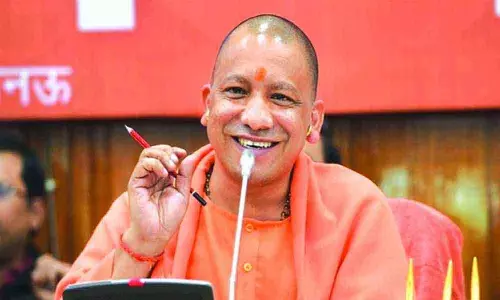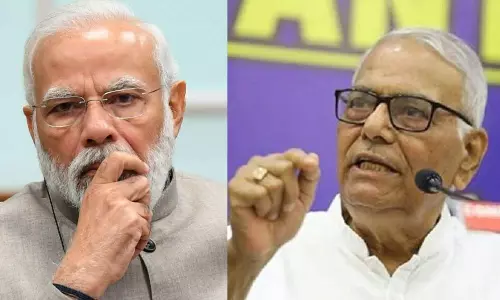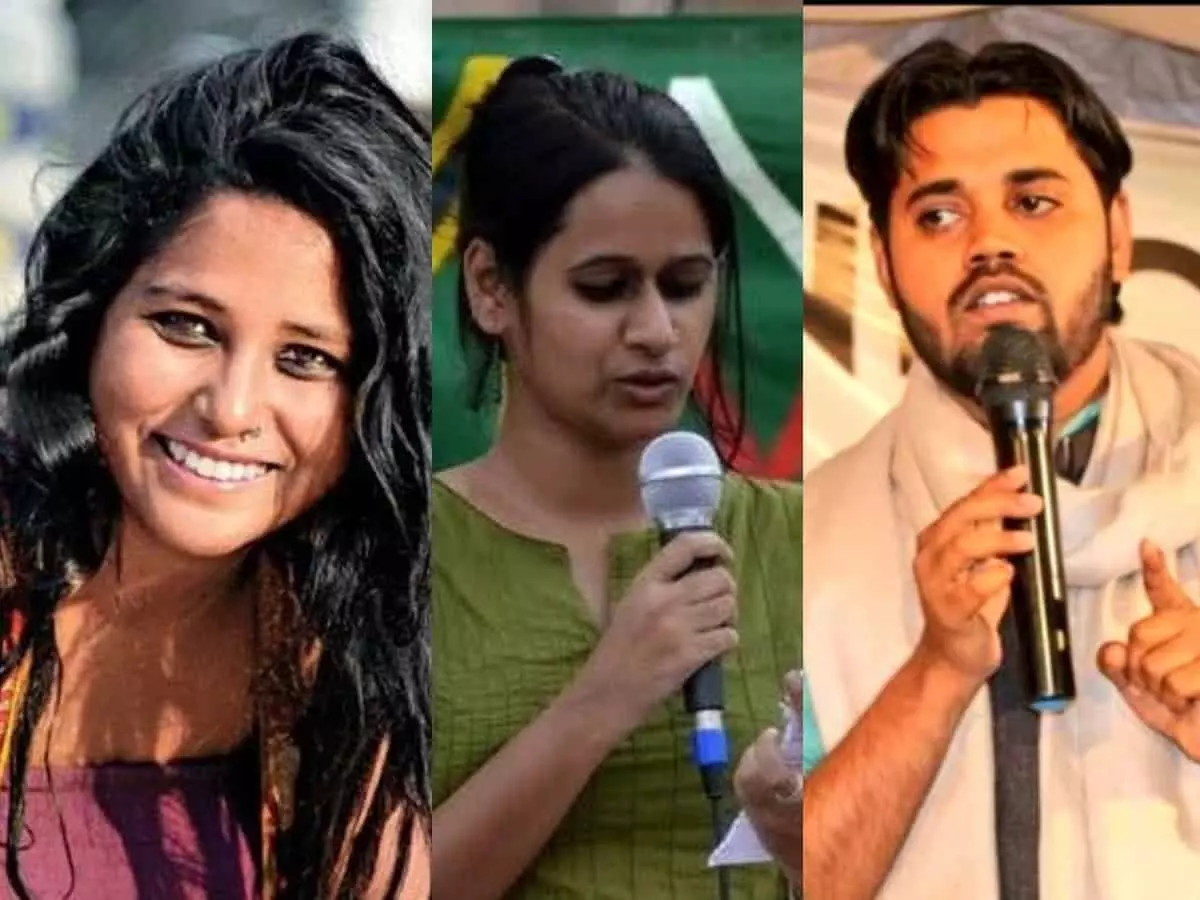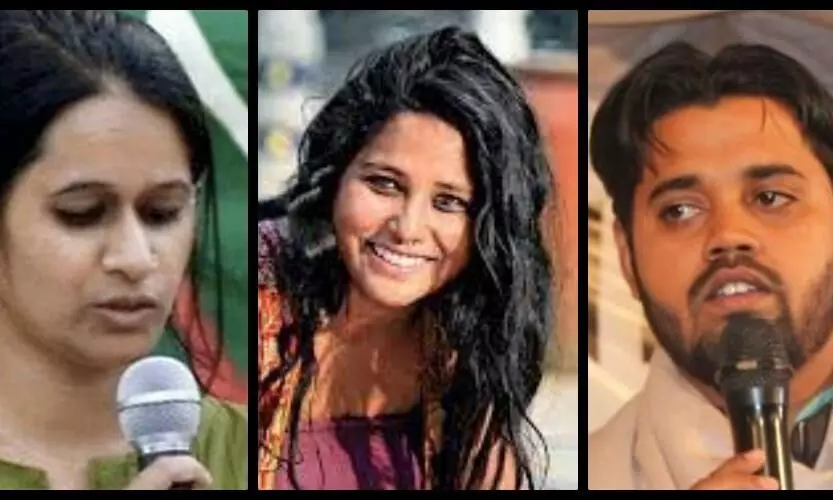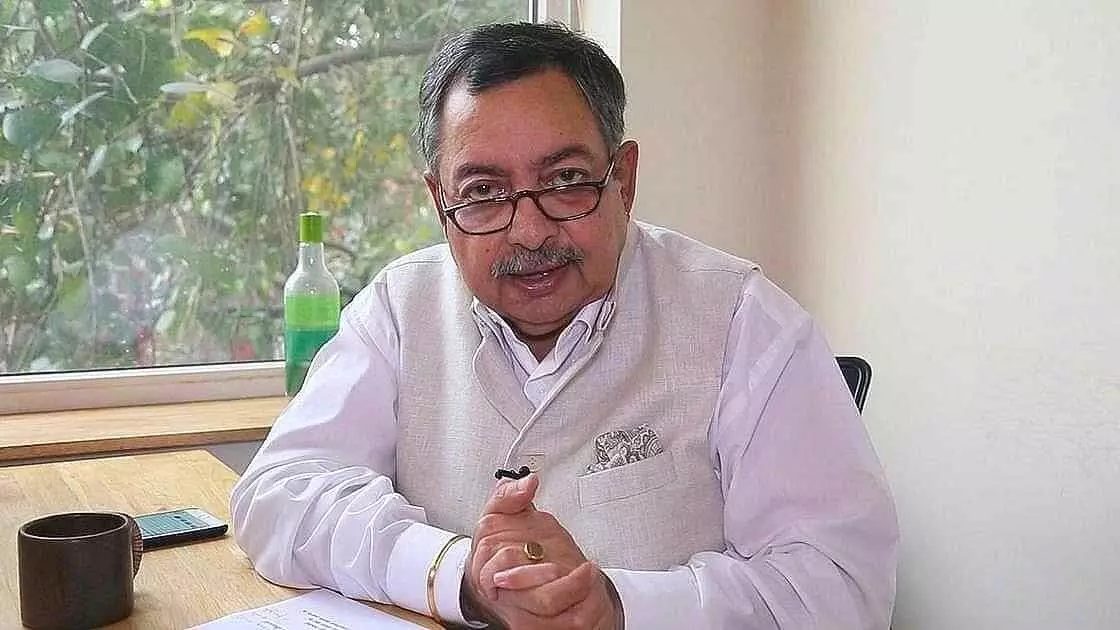
A judgement raising hopes
text_fieldsNatasha Narwal, Devangana Kalita and Asif Tanha (collage) who were granted bail on Tuesday by Delhi High Court
The Delhi high court's order granting bail to the three student leaders who were arrested, and in jail for over a year charged with the UAPA in the Delhi riots conspiracy case for leading the anti CAA protests, is happy news for all champions of democracy. The struggle against the citizenship laws, which sought to overturn the nation's foundational concepts was a rare moment of democratic participation. It was the strongest political challenge faced by the Modi-Shah duo who had been walking around unquestioned until then. It garnered international attention. The amendment was a plan to legitimise the degradation of the Muslim community, who had already been suppressed with riots and genocides, into second-class citizens. When the Congress, the left and even Muslim organisations were momentarily perplexed, the students of Aligarh and Jamia lit the flames of protest and became the voice of the opposition. The entire country soon followed. Campuses and streets became scenes of intense struggle and protests. The Muslim populace proved that they are a community that is capable of standing up and talking for themselves. This is a major threat for the Sangh Parivar who view the Muslims as their primary internal enemies. They plotted to discredit and sabotage the citizenship protests. The Delhi riots was one of their several conspiracies. Even central ministers gave instigating speeches. After the violence, instead of catching the perpetrators, the Delhi Police under the Union Home Ministry set about hunting and arresting the anti-CAA protestors. They hounded student leaders who were at the forefront of the struggle. They even jailed Jamia's student leader Safoora Zargar, who was pregnant when arrested. On Tuesday, the Delhi HC granted bail to three such arrested student leaders - Asif Iqbal Tanha, Devangana Kalita, and Natasha Narwal.
The content of the judgement is of supreme importance. Its key points include: Organizing a protest is not an act of sedition; the Delhi Police's charge sheet has less substance and more hyperbole; the allegations said in it could only be seen as part of the anti-CAA protest; the line between constitutionally guaranteed right to protest and terrorist activity shouldn't get blurred In the state's anxiety to suppress dissent; if this continues, our democracy is in danger; everyone has the right to dissent and protest; the UAPA cannot be applied to protests in a "cavalier manner"; UAPA should not be used to suppress dissent; some students holding a protest outside a university will not erode the nation's foundations.
The views expressed by Justices Siddharth Mridul and Anup Jayaram Bhambhani in the judgement are as important as the bail granted to the three student leaders. The judgement upholds the democratic tradition of the country. What a democratic government must do is to embrace the broad concept such a verdict upholds. However, it will be futile to expect such an approach from the Narendra Modi government. Going by earlier practice, they could well be thinking of having these judges transferred, or of some other ruse to get them out of the way. There is widespread criticism that constitutional institutions, including the courts, are acting in a particular direction ever since Modi assumed power. There was even an incident where senior justices of the Supreme Court held a press conference because they were dissatisfied with the way the judiciary was functioning. It was one of the rarest moments in the country's history., But one of them after his subsequent term as Chief Justice himself became a Rajya Sabha MP after retirement. We had just realized that the courts, the last pillar of our democracy, was also being bulldozed by Hindutva. The Delhi High court verdict comes in this backdrop as a whiff of fresh air.
Only a week ago, the Supreme Court scrapped the sedition charges against noted journalist Vinod Dua, signalling that interventions are coming from the courts with a message that you can pin hopes on them. In other words, the court is acting in a way that reflects that sentiment, at the same time various voices are being raised against the Modi-Shah team, which has been thriving in the shadow of the imposed silence. This also proves that the protests on the streets and the rising voices of the people are also giving the judiciary confidence. Democrats should therefore keep the flames of protests in the streets lit.







